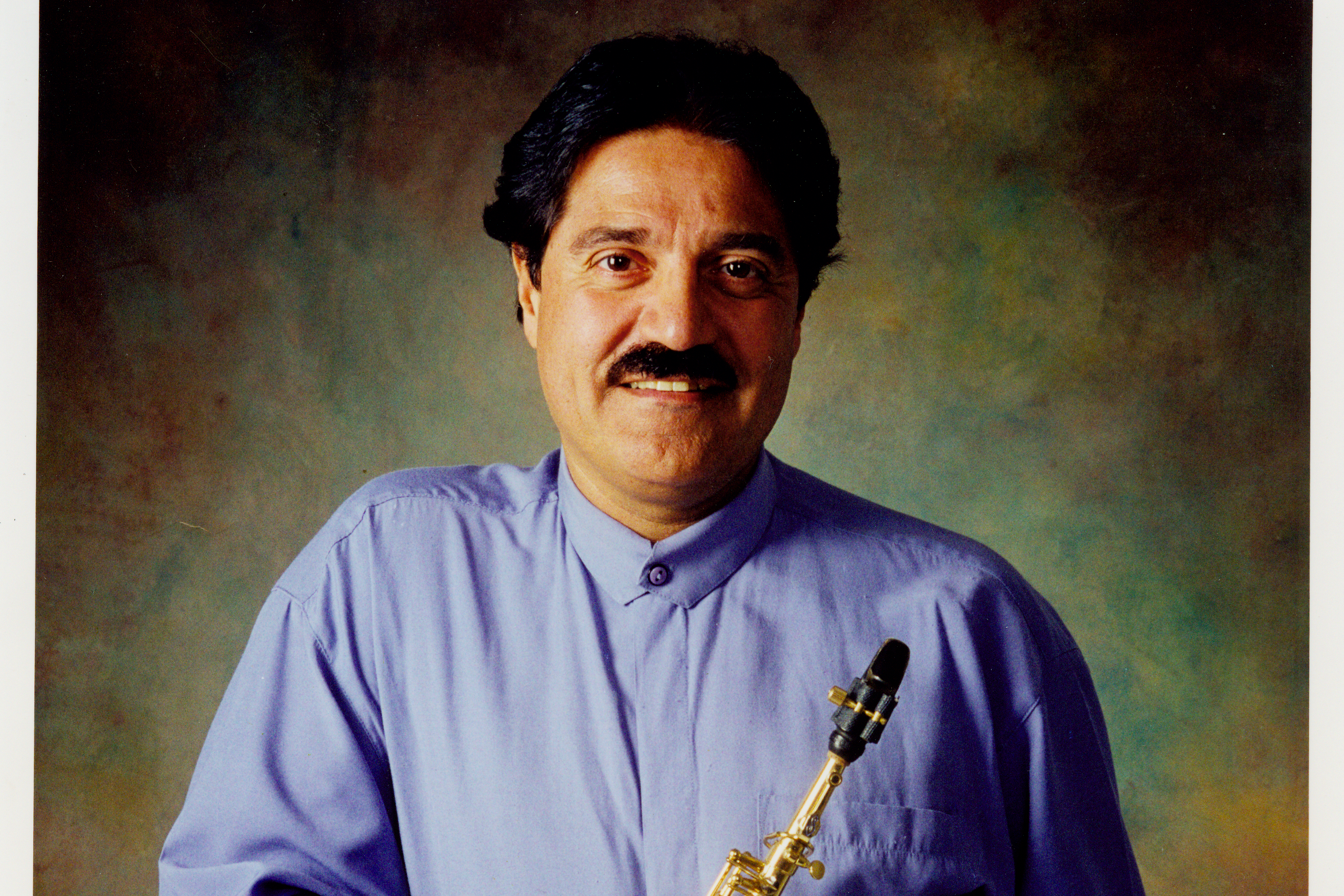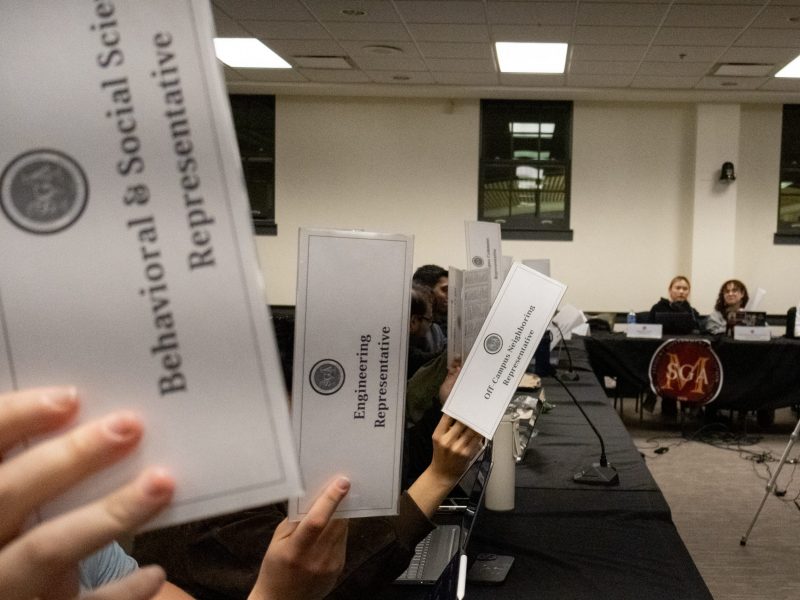Inside the Clarice Performing Arts Center at the University of Maryland, Alix Gilbert sat on a set of stairs, nervously typing out a long email.
It was the end of the first semester of Gilbert’s sophomore year, and she’d been fretting that she’d be expected to lead jazz ensembles if she became a high school music teacher. As a music education and classical flute performance major, she hardly felt prepared to do so.
So, after consulting some music education doctoral students, she decided to take a chance and reach out to the director of the University Jazz Band to see if he’d let her come aboard, despite not having any jazz experience.
Within two minutes of her hitting send, the director, Chris Vadala, sent an email back: “Be there Monday.”
“He just really cared about students,” said Gilbert, now a senior. “It wasn’t about having the top, crazy ensemble. It was about giving people the chance to make music.”
[Read more: Omer Quartet’s Music for Food concert fights hunger with music]
Vadala, who died from cancer on Thursday at 70, added his sound to more than 100 recordings and a number of film and TV soundtracks — from Fargo and Zombieland to Saturday Night Live and Criminal Minds. He worked alongside Aretha Franklin, Stevie Wonder, Ray Charles and Kendrick Lamar, among many other artists. And for the last quarter-century, he served as this university’s jazz studies director and saxophone professor.
The people who knew Vadala from his tenure at this university are well aware of his world renown. But they remember him most of all as someone who was intensely devoted to his students.
Dan Janis, who studied music education and jazz at this university from 2013 to 2017, had Vadala in class up to four times a week for nine semesters. He said Vadala was not a “paint-by-numbers” kind of professor.
“He took the time to really figure out who you were, who was sitting in the chair across from him,” Janis said. “Everyone had different experiences of him because we’re all different people.”
As a woodwind artist with the Chuck Mangione Quartet, Vadala traveled across the world and the country, performing in all 50 states and racking up performing credits on two Grammys, two Emmys and a Golden Globe.
[Read more: Meet the University of Maryland’s new music school director]
This university hired Vadala in 1993 as a music professor and an adjunct lecturer. A year later, he became the jazz studies director, where he oversaw the music school’s numerous jazz bands.
It was no coincidence that this university’s jazz program “rose to new heights and gained the national reputation that it enjoys today” under Vadala’s leadership, music school Director Jason Geary wrote in an email.
“Chris brought tremendous devotion, passion, and artistry to his work at UMD, along with an unfailing generosity of spirit as a teacher, mentor, colleague, and friend,” Geary wrote.
Vadala’s skill at connecting with students from across the spectrum of backgrounds and musical capabilities made him in-demand as a teacher, said Mark Hill, the coordinator of the music school’s winds and percussion division. He was constantly pulled away from campus to conduct student ensembles and lead jazz festivals.
Just as well, Vadala was on the receiving end of what seemed to be a never-ending stream of performance requests. Up until his death, Vadala served as first-call saxophonist for the National Symphony Orchestra, performing with the group whenever a piece of music required saxophone.
Yet for all of his talent, Janis said Vadala strove to make performances engaging for all members of his audience, no matter their level of familiarity with jazz music.
“He could be doing some crazy solo over some crazy jazz tune that nobody knows, and just put ‘Mary Had a Little Lamb’ in there like it was nobody’s business,” Janis said. “And that’s when the little 10-year-olds in the audience go, ‘Wait, now I know what I’m doing,’ and get up and dance.”
You can tell a lot about a person from how they crank out a jazz solo, said Tommy Urrutia, who played trumpet in Vadala’s University Jazz Band for three years. For Urrutia, Vadala’s playing was reflective of his sense of humor, kindness and comfort in his own skin.
He remembers one rehearsal, when Vadala began a solo by wailing out a note that was entirely out of the song’s chord progression.
“The note was not in the same key or anything,” said Urrutia, a senior finance major. “But somehow, just the way he was leaning on that note, it made it seem like it was the coolest note you could be playing.”
Chris Gekker, a trumpet professor who worked down the hallway from Vadala, said his kindness made him keep his decade-long battle with cancer from even his closest friends. Sparing his loved ones from the pain of knowing about his disease was “just like him,” Gekker said.
As Janis grieves his former teacher’s death, one memory keeps coming back to him.
While he was still at school, Janis’ girlfriend had to leave her dorm unexpectedly, and he stayed up until 3 a.m., helping her move out. Five hours later, he sat exhausted in front of Vadala at their private lesson and recounted the previous night’s events.
The first thing the professor asked, Janis remembered, was if his girlfriend was OK. Then he asked if Janis was OK. And for the rest of the hour-long session, they just talked.
“Sometimes that’s just so much more important than whether I got better at my scales that week,” Janis said. “He cared. About everyone. He didn’t care who you were or what you were, he just cared.”
CORRECTION: Due to an editing error, a previous version of this article misstated Vadala’s age. This article has been updated.



